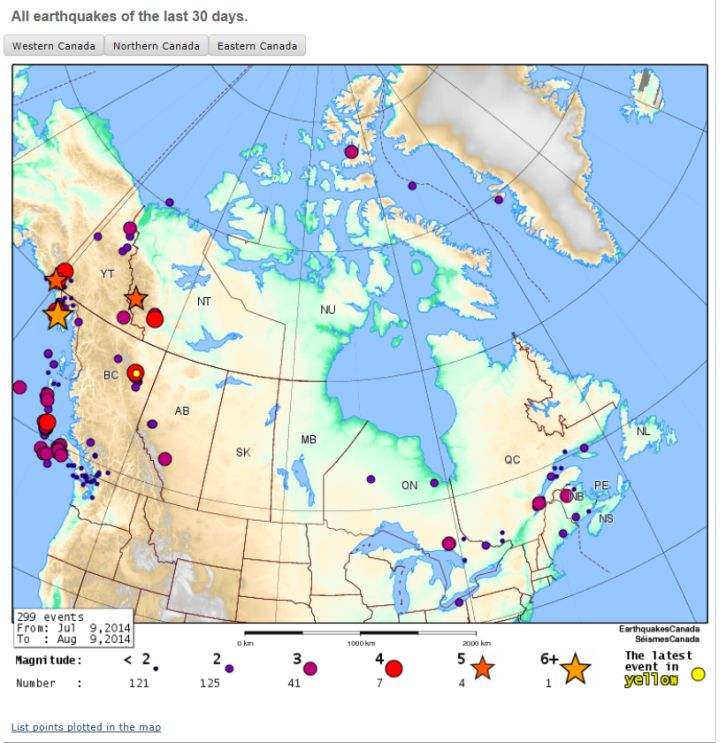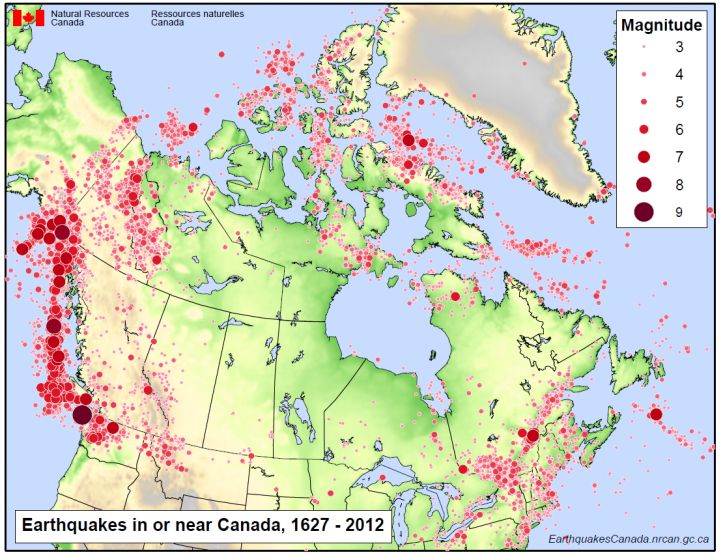Watch above: Those living near the epicentre of Saturday’s earthquake near Rocky Mountain House are sharing their stories.

EDMONTON – A 4.3 magnitude earthquake struck central Alberta Saturday morning.
Natural Resources Canada originally said the quake hit about 10 kilometres northeast of Rocky Mountain House at 9:28 a.m. It was originally recorded as a magnitude 4.1 quake.
However, later Saturday Natural Resources Canada confirmed it hit 27 kilometres southwest of Rocky Mountain House at a magnitude 4.3.
“The depth of this earthquake is considered to be shallow, which means that they are 10 kilometres or shallower,” said Honn Kao, an earthquake seismologist with The Geological Survey of Canada.
While no damage has been reported, Kao says the quake was lightly felt by residents in Rocky Mountain House.
“Some of them actually mentioned that they heard a ‘boom’ sound,” Kao said Saturday afternoon. “Another fellow reporter mentioned that something rattled.
“For a magnitude of this size we don’t expect that kind of significant damage to happen.”
Kao says the epicentre region of Saturday’s quake is not surprising to seismologists.
“The southwestern part of Alberta, especially those areas close to the Rocky Mountains, they are slightly active regions.”
Power outages were reported in parts of Clearwater County.
History of earthquakes in Alberta
Kao says this is the third earthquake to hit Alberta in the past 30 days.
“Both the earlier two events occurred with a much smaller magnitude,” he said. “They range between 2 and 3 (magnitude).”
Kao says since 1985 there have been nine earthquakes that measured over magnitude 3.7.
“In a way, the occurrence of felt earthquakes in Alberta is still relatively rare compared to other parts of the country. But we do have felt earthquakes once in a while.”
Kao says earthquakes that measure 2.5 or lower are generally not felt by people unless they are directly on top of the epicentre.
Kao says this earthquake should act as a reminder for all residents to be prepared.
“The region is still, after all, a seismic region. And therefore, as we all know, the best strategy to mitigate seismic hazard and risk is through well preparation. Very good preparation.”
Essentials for your earthquake kit:
- Water – At least two litres of water per person per day; include small bottles that can be carried easily in case of an evacuation order
- Food that won’t spoil, such as canned food, energy bars and dried foods (replace food and water once a year)
- Manual can opener
- Crank or battery-powered flashlight (and extra batteries)
- Crank or battery-powered radio (and extra batteries)
- First aid kit
- Extra keys to your car and house
- Some cash in smaller bills, such as $10 bills and change for payphones
- A copy of your emergency plan and contact information
- If applicable, other items such as prescription medication, infant formula, equipment for people with disabilities, or food, water and medication for your pets or service animal (personalize according to your needs)
*Editor’s note: This story was originally published at 1:18 p.m. MT Saturday August, 9, 2014. It was updated at 5:10 to include changes made by Natural Resources Canada to the location of the quake.







Comments